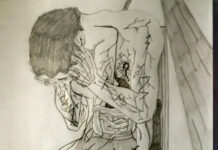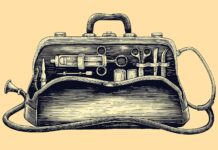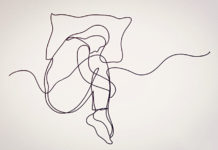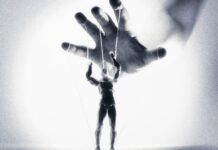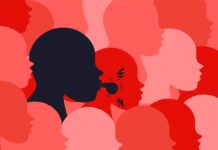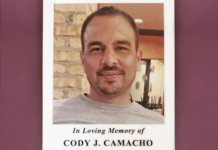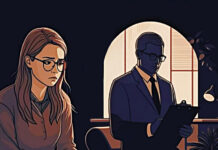Once Upon a Time in Withdrawal
I’ve seen people put more research into how to cook a turkey at Christmas time than previous psychiatrists did for my health. From the DSM to the prescription pad, if it wasn’t there, it didn’t exist. It’s a very cut-and-dry, mix-and-match method to modern medicine that has harmed millions of people, and it nearly killed me.
Eugenics, Lobotomy, Risperidone: “Science” Gone Awry
The worst thing about psychiatry is how it convinces your family to do things that they think are correct, which ultimately gets them to participate in harming you.
The Great Grey Beast
I am not the only child to have been devoured by the great grey beast that is the American psychiatric system. You're eaten away little by little, every single day, until what's left is barely a person.
To Live and (Almost) Die in L.A.: A Survivor’s Tale
After 25 years of chronic emergency, 22 mental hospitalizations, a stint at a “community mental health center,” 13 years in a "board & care," repeated withdrawals from addictions to legal drugs, and a 12-year marriage, I plan to live every last breath out as a survivor, an advocate, and an artist.
The Breaking Point
How did I become someone who could barely function? I was a high-performing sales executive ranked in the top 2% of an international business communications company. But now, after using powerful psych meds for depression and anxiety for more than a decade, I couldn’t do basic things like go to the grocery store, plan a meal, make dinner, or get together with friends.
Your Weight is Forbidden Fruit
In inpatient eating disorders care, we were required to step on the scale but were not allowed to know what we weighed. We were told it was “against recovery” to know our weight; that knowing it would surely cause a devastating relapse.
Suicide: Shhhhhh
When we have a strong urge to live, it must be very difficult to understand another person’s wish to die. So far, no one has been willing or able to “go there” with me.
Keeping Meili Off Psychiatric Drugs
We first came under pressure to give our developmentally disabled and autistic daughter a psychiatric drug when she was in her mid-teens. She was attending a local school for autistic children but was unable to adapt to their program, and we were urged to consult a psychiatrist. What enabled us to resist the pressure to put our daughter on drugs?
Little Porcupine Goes to the Psych Ward
I was so anxious about having to raise three boys alone that I felt I was going insane. So I thought of going to see a psychiatrist. I was looking for Carl Jung. Instead I found a system where they give you pills, whether you need them or not.
The “Shotgun Method” – A Story of Mental Health Crisis in Iceland
"Let's try the shotgun method," my psychiatrist said — meaning that you load the gun with a bunch of pellets and hope that one of them hits the target. I went through 16 different psychiatric medications in five years, and they were not the right choice for me.
Seeing Mental Illness as a Spiritual Illness
I am a simple woman, 47, single mother of two beautiful children, diagnosed bipolar 10 years ago, and I want more from the way...
Spoilation: What Becomes of the Forcibly Drugged?
I have been forcibly drugged for over forty years now. The dose of neuroleptics I am forced to take will probably kill me.
Trauma in a Place Where Peace Should Be
It should have been safe and healing for me in the hospital. Instead, it was like being at home with my stepfather: I was abused and invisible, just trying to protect myself.
Catching My Breath After A Panicked Journey
$24,000 later and no one knew what was wrong with me. They sent me home with a bag of pills. After being in the hospital, I developed a fear and mistrust of doctors. My general practitioner suggested antidepressants. More pills. It was all they could recommend. I wouldn’t take them. My anxiety worsened. I was obsessed with the idea that if I slept, I would die. So, I stayed awake as much as I could. For an entire year, this was how I lived.
Why I Fight for Trauma-Informed Systems
I am not sure what was worse: being abused growing up while my community documented—then ignored—my torment, or being attacked for going public with my story.
A Love Letter to the Mad
My madness forged me. Madness led me to deeper truths. Madness discarded beliefs which no longer served me.
How “Schizophrenia” Helped Me Find My Soul Mate
Dating someone when you have a history of “schizophrenia” is very hard. I figured that if people left me for something as common as depression, anyone hearing my story of psychosis would give me an immediate boot. My initial efforts were awkward and lacked discretion — into each date I’d burst, willing to commit for an eternity with unconditional love.
Green Star Mother Demands Answers from VA Secretary
If the Veterans Administration is sincere in wanting to reduce veteran suicides, the first place to start is to collect information following these deaths to try to better understand the causes.
Therapy Can Harm Too
I’d like to open up a conversation about the role psychologists and social workers play in getting people on psychiatric drugs and ensuring treatment compliance.
Trapped
Back in 1983, I put myself in a mental ward. I desperately wanted help with my eating disorder, but no one took these types of problems seriously back then. The ward was rather nice, so I returned many times. Nothing good ever came of it, but I always hoped this time, it will do some magic. Every time I left, I'd realize my eating problems hadn't been solved at all.
The Wind Never Lies
When I was young I believed the world spoke to me. Lightning split across the sky to the pulse of my thoughts. Rings around...
Psychedelic Therapy Will Not Save Us
For women survivors of sexual or physical trauma, MDMA should be used judiciously. Or maybe it shouldn’t be used at all.
Disability as a Creative Practice
I wanted to explore how time and sequence work when memory is disrupted, in my case due to traumatic brain injury. I needed to document and reclaim my own sensorium.
“It Is What It Is” — Learning From the Past Without Getting Stuck in...
My first mental-ward stay would not be the last. At last count... I lost count. Fortunately for me, I've learned much from my experience and vicariously from my peers.
Giving Caregivers a Platform: Leigh, Mother of Melissa
This is the story of a young woman who suffered through the agony of "kindling" and other drug-related harm, eventually dying by suicide. This is also the story of her mother’s path ahead.

